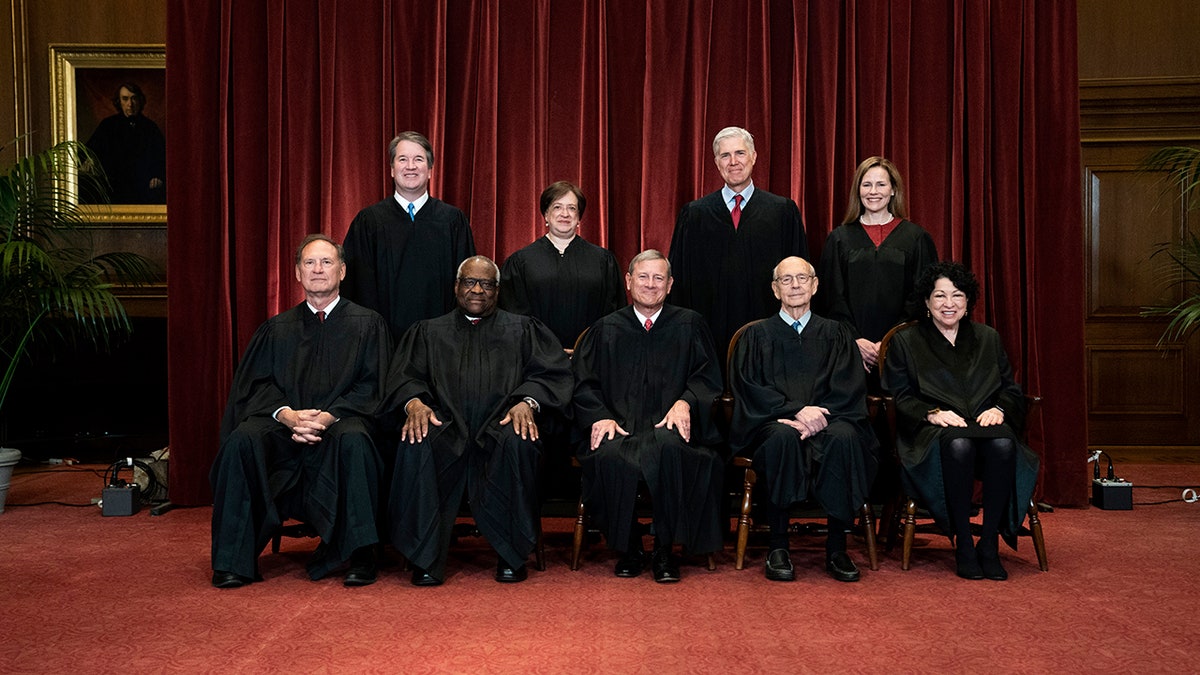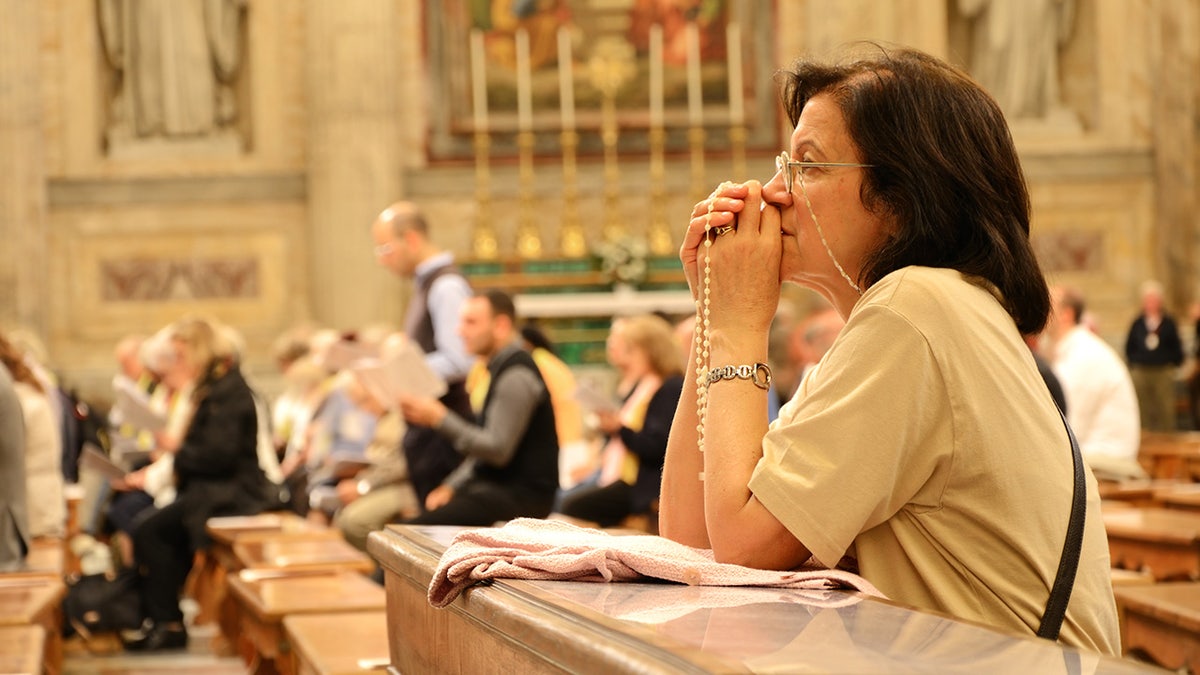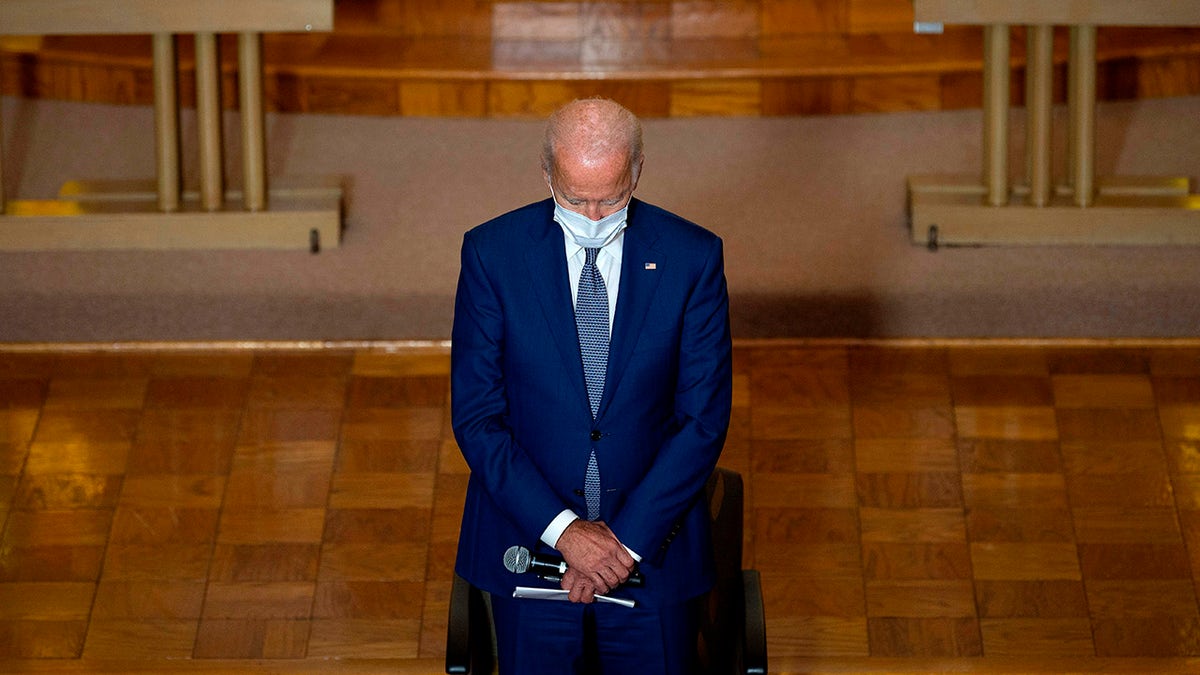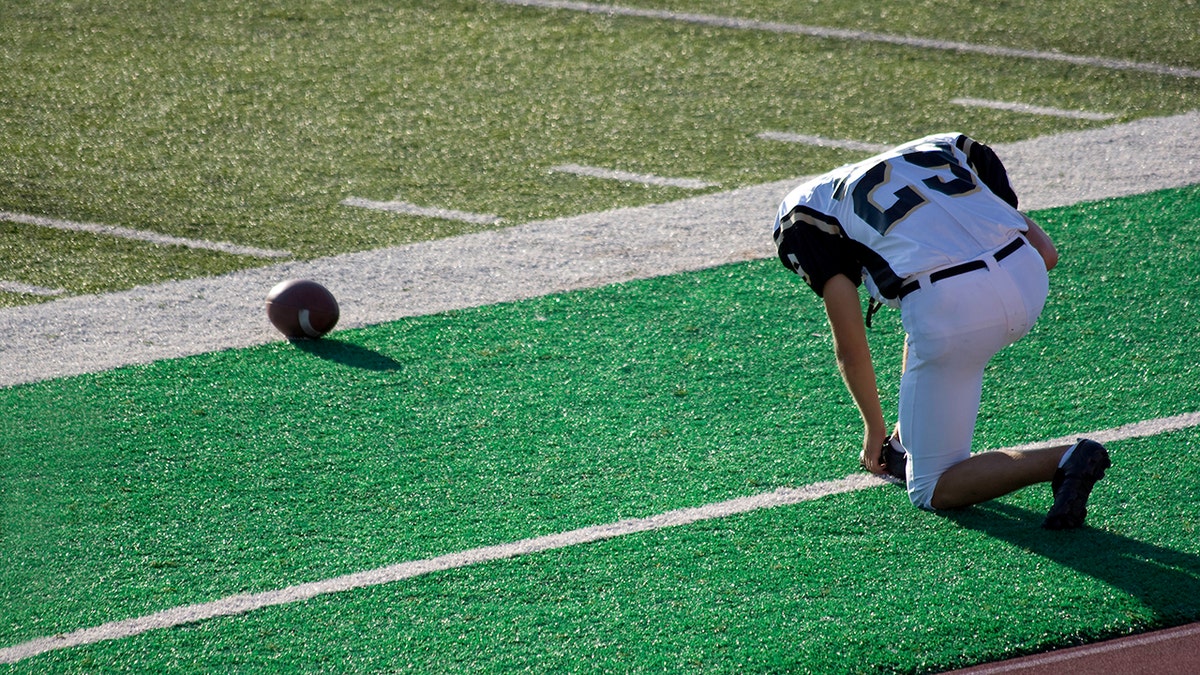Fox News Flash top headlines for July 7
Fox News Flash top headlines are here. Check out what's clicking on Foxnews.com.
Rolling Stone alleged the Supreme Court could have been unduly influenced by praying with religious groups in a lengthy piece published Wednesday.
Politics reporter Kara Voght wrote that Peggy Nienaber, vice president at Faith & Liberty, admitted that she has prayed with Supreme Court justices in a secretly recorded video after the overturning of Roe v. Wade.
"This disclosure was a serious matter on its own terms, but it also suggested a major conflict of interest. Nienaber’s ministry’s umbrella organization, Liberty Counsel, frequently brings lawsuits before the Supreme Court," Voght wrote.
"In other words," she added, "Sitting Supreme Court justices have prayed together with evangelical leaders whose bosses were bringing cases and arguments before the high court."

Seated from left are Associate Justice Samuel Alito, Associate Justice Clarence Thomas, Chief Justice John Roberts, Associate Justice Stephen Breyer and Associate Justice Sonia Sotomayor, Standing from left are Associate Justice Brett Kavanaugh, Associate Justice Elena Kagan, Associate Justice Neil Gorsuch and Associate Justice Amy Coney Barrett. (AP)
‘CHRISTIAN NATIONALIST’ MOVEMENT WILL ‘BREAK’ AMERICAN DEMOCRACY, NEW YORK TIMES GUEST ESSAY WARNS
While Liberty Counsel filed an amicus brief in support of the Dobbs case that overturned Roe v. Wade, it was not directly involved in the actual case. Over 130 other organizations and people filed amicus briefs in support of the case, including the U.S. Conference of Catholic Bishops. Religion was also not cited in the final decision released on June 24.
Although the article heavily relied on Nienaber’s off the record comments, Nienaber later made a statement that emphasized she was speaking about her past experiences with justices rather than an ongoing relationship.
"My comment was referring to past history and not practice of the past several years," Nienaber said. "During most of the history up to early 2020, I met with many people who wanted or needed prayer. Since early 2020, access to the Supreme Court has been restricted due to COVID. It has been many years since I prayed with a Justice."
Voght’s piece also cited Rob Schenck, who originally founded the ministry group in the 1990s and denounced the behavior.

A woman is shown praying here inside a church. (iStock)
"I was sure, while we were doing it, it would be a positive contribution to our public life," Schenck said. "It didn’t have the effect I thought it would. In some ways, it set the stage for the reversal of Roe, which I now think of as a social catastrophe."
Schenck, however, left the group in 2018 and mentioned he has no knowledge of their internal behavior now.
Still, Schenck's descriptions of how prayer works were given credence by Voght, who wrote credulously:
"To pray with the justices was to perform a sort of 'spiritual conditioning,' Schenck explains. ‘The intention all along was to embolden the conservative justices by loaning them a kind of spiritual moral support — to give them an assurance that not only was there a large number of people behind them, but in fact, there was divine support for very strong and unapologetic opinions from them.’ Prayer is a powerful communication tool in the evangelical tradition: The speaker assumes the mantle of the divine, and to disagree with an offered prayer is akin to sin. ‘It’s just not common to interrupt or challenge a prayer,’ Schenck explains. ‘That’s not something a devout Supreme Court justice would ever consider doing.’"
DEMANDING SUPREME COURT EXPANSION, LIBERALS ‘DEEPLY FRUSTRATED’ WITH ‘FOOL’ BIDEN: POLITICO

TOPSHOT - Democratic presidential candidate and former US Vice President Joe Biden prays at Grace Lutheran Church in Kenosha, Wisconsin, on September 3, 2020, in the aftermath of the police shooting of Jacob Blake. (Photo by JIM WATSON / AFP) (Photo by JIM WATSON/AFP via Getty Images)
Despite the headline, in the end, the article admitted that prayer does not constitute a "conflict of interest" for the justices.
"Prayer unto itself in no way presents a conflict of interest for the justices, says Russell Wheeler, a visiting fellow of governance studies at the Brookings Institution, not even with a group like Faith & Liberty that has business before the court. Justices are allowed to visit there with whomever they’d like in their private chambers, and have socialized with interested parties throughout the court’s history," Voght wrote.
She closed citing Supreme Court expert Adam Winkler’s concerns that the Supreme Court justices’ religion could nevertheless influence their choice in cases.
"For Winkler, the greater concern is not prayers, but the ‘religious-themed' decisions he’s seen come down from the high court this term, pointing to not only the Roe reversal but also opinions that permit unchecked free exercise of First Amendment rights. ‘The problematic aspect isn’t whether they’re praying,’ Winkler says, ‘but that several justices seem committed to reading their religion into the Constitution.’," she concluded, despite religion not entering into the majority's decision on Dobbs.

"Football player prays on the sidelines before a game. (iStock)
The article was later slammed by Twitter users for misunderstanding the concept of prayer.
"That is, uh, not what people think," CNN’s Mary Katherine Ham tweeted regarding the quote, "The speaker assumes the mantle of the divine, and to disagree with an offered prayer is akin to sin."
The Federalist’s David Harsanyi wrote mockingly of the article, "Prayed?! Impeach them immediately."
"I love that the left thinks this is shockingly controversial," conservative writer Chad Felix Greene tweeted.
Washington Examiner columnist T. Becket Adams wrote, "insane violation of longstanding precedent barring justices from, uh, praying?"
"How long until we find out Rolling Stone is lying about this one too?" The Spectator’s Grayson Quay tweeted, citing past times the magazine published false information.

